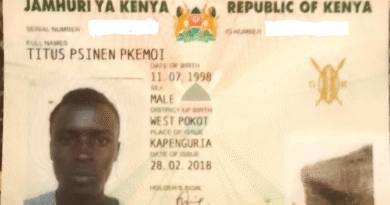How to Spot a Scam is Now a Survival Skill
International scammers have become more sophisticated and widespread. From emails promising winnings to fake investment opportunities on social media, fraudsters are constantly refining their tricks to outwit unsuspecting victims.
Zimbabwe, like many other countries, has seen a massive rise in SMS, social media and online fraud cases, with cybercriminals exploiting economic uncertainty and trust in digital platforms. Knowing how to spot a scam is no longer optional, it is a necessary survival skill.
Once upon a time, scams were easy to detect. A poorly written email from a stranger promising millions in inheritance money was enough to raise alarm bells. Today, scams have evolved into highly convincing operations.
Fraudsters now use professional-looking websites, cloned logos, fake testimonials and even artificial intelligence to impersonate trusted organisations. The rise of mobile money, online banking and e-commerce has given scammers fertile ground to operate.
Criminals prey on human psychology, exploiting emotions such as greed, fear, urgency and trust.
· Fear and urgency: “Your bank account will be closed if you do not act now.”
· Greed and reward: “You have won $10,000! Claim your prize immediately.”
· Authority: Messages that appear to come from government agencies, banks or employers.
· Romance: Fraudsters pretending to be love interests to win sympathy and then money.
Even highly educated and tech-savvy individuals have been deceived when their guard is lowered.
Common Types of Scams
Phishing: Fake emails or SMS from “banks” or “mobile operators” asking for personal details.
Investment Schemes: Promises of high returns in forex, shares or cryptocurrency.
Online Shopping Fraud: Fake stores advertising cheap goods that never arrive.
Romance Scams: Fraudsters creating emotional bonds to extort money.
Charity Fraud: Bogus appeals for donations after disasters.
Business Email Compromise: Criminals impersonating company executives to steal funds.
Red Flags to Watch
There are common warning signs every citizen should know:
· Unsolicited messages or calls.
· Promises that are “too good to be true.”
· Pressure to act quickly.
· Requests for passwords or PINs.
· Untraceable payment methods such as crypto or gift cards.
· Poor grammar and spelling in communications.
· Lack of verifiable contact details.
· Stories designed to trigger guilt, fear or excitement.
Practical steps can protect you from falling victim:
· Verify messages by contacting your bank or mobile operator directly.
· Avoid clicking on suspicious links.
· Enable multi-factor authentication on accounts.
· Keep personal details private on social media.
· Research companies before investing.
· Use secure payment systems and avoid paying into personal accounts.
· Share knowledge, warn family and friends, especially the elderly.
Even the most vigilant person can be tricked. If you fall victim:
· Stop communication with the scammer.
· Contact your bank or mobile provider immediately.
· Report the matter to the police.
· Warn others about the scam.
· Review and strengthen your security practices.
While individuals must stay alert, banks, mobile operators and regulators must do more to fight fraud. Public awareness campaigns, tighter security systems and stronger law enforcement are vital. Communities can also help by sharing information and supporting victims, reducing the stigma of reporting scams.
Scams thrive because they exploit trust, fear and hope. But with vigilance, Zimbabweans can outsmart fraudsters.
The golden rule remains,If it sounds too good to be true, it probably is.










